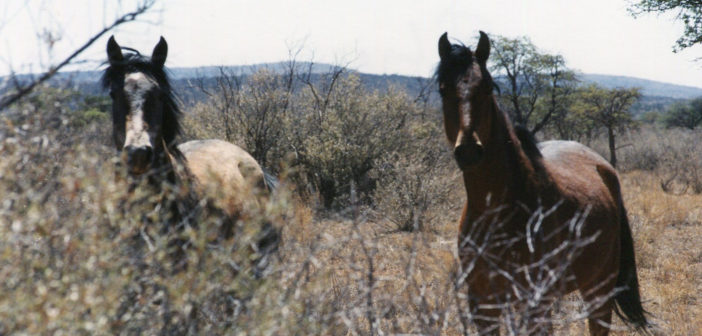NSPCA inspectors were recently horrified to discover that horses in the care of the South African National Defense Force (SANDF) were starving to death. 25 horses on the army base, operated by the South African Army Special Infantry Capability (SAASIC) Unit, were in such an emaciated condition or compromised state of health that to prevent their further suffering they had to be destroyed.
 In 2013, SANDF and NSPCA entered into a Memorandum of Understanding, which was formally signed in May 2016. Yet the SANDF have continually reneged on the agreement, particularly the SAASIC Unit, with regards to their responsibilities to adequately care for the animals in their control.
In 2013, SANDF and NSPCA entered into a Memorandum of Understanding, which was formally signed in May 2016. Yet the SANDF have continually reneged on the agreement, particularly the SAASIC Unit, with regards to their responsibilities to adequately care for the animals in their control.
Their failure to secure suitably qualified personnel or adequate facilities, combined with a non-empathetic infrastructure that has repeatedly failed the animals in their care, has resulted in a complete breakdown in the welfare conditions afforded to the horses.
The main herd had no food, leaving the horses with no other option but to eat soil and their own faeces. Food was only provided to the horses after the NSPCA forced the SAASIC unit into taking emergency action to secure adequate feed for the animals.
Further investigations revealed that prior to this inspection, the Military Veterinary Institute (MVI) had already had to step in and euthanise starving horses and treat others as a result of ongoing neglect.
A further 169 horses were kept on the Potchefstroom property in the North West Province, which is overstocked, has inadequate shelter and is a hazardous environment for these animals.
The NSPCA will be laying criminal charges against the persons responsible for the suffering of these horses.
The NSPCA has received no official communication from the Government. The chief of the SANDF, General Solly Shoke, to whom we addressed a letter, has neither acknowledged receipt thereof nor responded in any way to the serious animal welfare concerns that were raised.
It is of further concern that the SANDF has publicly stated that 60 of the remaining horses will be taken to Boekenhoutskloof, a Signals Base Camp. The area in which the camp is situated is noted for ticks and tick borne diseases in horses, particularly in summer months. This, in conjunction with the lack of equine facilities at the camp, raises questions regarding the ability of the SANDF to implement effective parasite control measures for these wild horses. Furthermore, there are no veterinarians or veterinary facilities belonging to the SANDF in the area.
We question the lack of consultation by the SANDF with the NSPCA since the findings of our recent inspections, as well as the decision taken to move 60 wild horses to an unsuitable area, where challenges exist in providing these animals with the care and attention they deserve.
We will continue to conduct inspections and monitor the welfare of these horses. Given the circumstances, the necessity may well arise in the future for the NSPCA to remove the horses on welfare grounds. This work will be undertaken with donor funding, which is hard come by. It is our belief that through responsible ownership, consultation and progressive action by the SANDF, this entire situation could have been avoided.
Featured image: wild horses in South Africa. Courtesy Kim Bartlett / Animal People, Inc.





